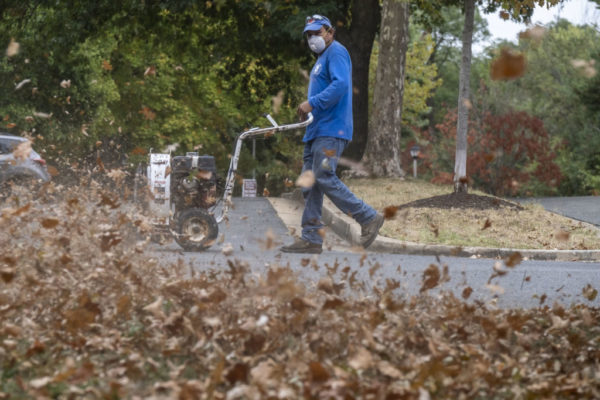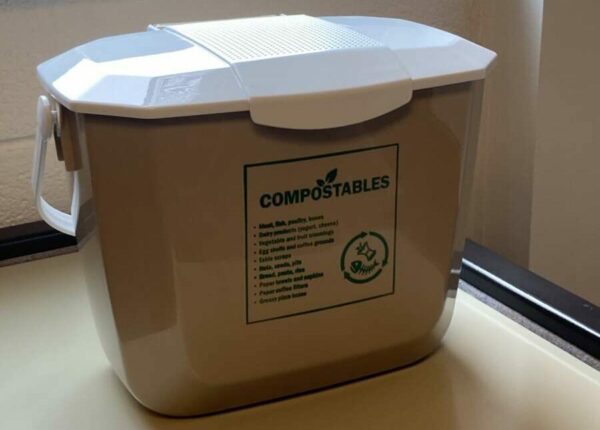
Cool fall mornings mean leaf collection season is near.
And Arlington’s Department of Environmental Services is reminding homeowners collecting their leaves and cleaning out their gardens to use only paper yard waste bags.
“Plastic ones can’t be composted and won’t be collected. If you have a landscaper, make sure they know,” spokesman Peter Golkin said. “The issue with yard waste in plastic bags is the most glaring problem for organics.”
Leaves bagged in paper can be composted along with other yard waste and food scraps, and turned into compost residents can use in their gardens.
Since September 2021, Arlington County has collected residents’ food scraps mixed in with their yard waste. Participation hovers around 40-45% of homes, and the county says participating residents diverted 27% of their food waste from the incinerator in April 2022, up from 21% in January 2022 and 15% in October 2021.
“As with any new program, there is a learning curve. Arlington is one of the first localities to collect food scraps at the curb,” Golkin said. “Food scraps collection is just over a year old but we hear from new users and even won a 2022 Achievement Award from the Virginia Association of Counties.”
He reported that there is demand for learning more about the organics collection process.
“We had a big turnout for the Rock-n-Recycle Solid Waste Bureau open house this month and got to share loads of information and compostable bags for food scraps, particularly with young families,” he said. “Same for the County Fair. More educational opportunities to come.”
The department will soon distribute a cart hanger with a rundown of what can, and can’t, be put in the cart.
Golkin has two rules of thumb: “If it grows, it goes” and “When in doubt, leave it out.”
Also under "YES": Hair, finger nails. Really. If it grows, it goes.https://t.co/9ps4JXzZET pic.twitter.com/h60FluVKRk
— Arlington Department of Environmental Services (@ArlingtonDES) September 22, 2022
So go ahead and put hairs from the hairbrush or fingernail clippings in the food scrap collection bin. Other bathroom trash, like used tissues, however, cannot be composted.
While a variety of products are advertised as “compostable,” residents should take care when disposing them, Golkin says.
“Products that are 100% bamboo are compostable but if you can’t tell, best to put an item in the trash,” he said. “Read disposal instructions carefully. If there are no disposal instructions, that’s probably a sign to use the garbage can.”
For example, the handles of bamboo toothbrushes are compostable but the nylon bristles are not. Meanwhile, plastic-looking compostable cups or flatware must be Biodegradable Products Institute or Compost Manufacturing Alliance certified compostable.
“Apple cores, banana peels, chicken bones and even greasy pizza boxes are easier,” Golkin said. “Toss them in the green cart.”

Since the initiative launched, he said, more than 100 cubic yards of finished compost has returned to Arlington for residents to pick up — similar to the county’s free mulch program. More will be available “in the next few weeks,” with details forthcoming on DES’s social media account.
The county’s curbside pickup is not an option for apartment dwellers, but officials encourage residents to discuss food scrap collection with their apartment or condo management.
For now, they can drop off their food scraps at the Trades Center in Shirlington, at local farmers markets and at the MOM’s Organic Market near Courthouse.
Based on current waste stream data, staff and a public advisory committee are working on a new, state-mandated Solid Waste Management Plan for the county, to be released in 2024, he said.

